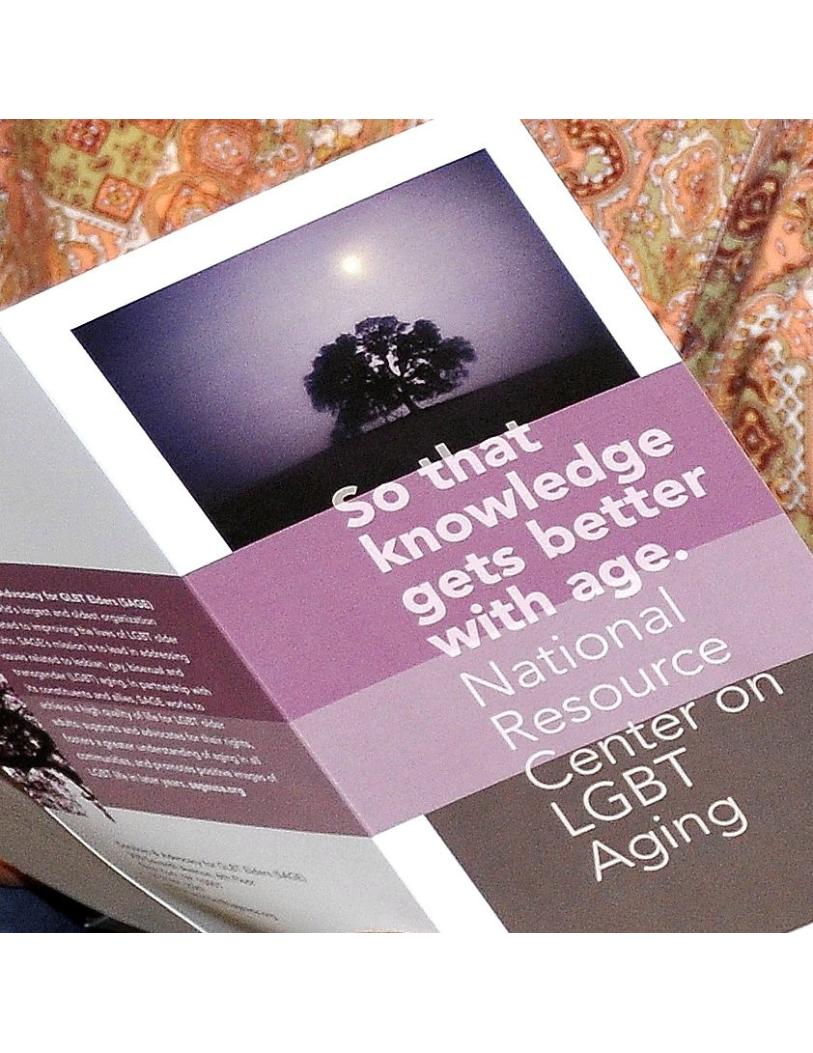How Area Agencies on Aging Can Help LGBT Older Adults
February 2012 | Leland Kiang
In 2010, AARP published a study suggesting the majority of older Americans prefer to age in place in their own homes. Many older Americans, however, are unfamiliar with the breadth of assistance available (from their local Area Agencies on Aging) to help them age in place. Consider these stories.
In February, Anton’s doctor diagnosed him with congestive heart failure. Up until recently, his partner Ben drove him to his doctor’s appointments in downtown Olympia. A month ago, Ben’s physician told him he should give up driving. Since then, Anton has skipped two of his last three medical appointments because he doesn’t drive, and his heart failure makes walking to the bus stop exhausting.
Lisa always admired the love her neighbors Maria and Sylvia had for one another: how they finished each others sentences; how Sylvia held Maria’s hand when Maria descended the front steps. When Lisa first moved to her Atlanta apartment building, another neighbor told her Maria and Sylvia met more than 35 years ago. Lately, Lisa has noticed Maria and Sylvia appear to be losing weight. On a chance visit, Lisa saw that the couple’s refrigerator was nearly empty. Maria confided that their rent has increased and the couple are finding it harder to make ends meet.
Max and Tony liked to be active. They didn’t consider themselves "old," because they still drove, did their own yard work, and attended a ballroom dance class every Wednesday night. A month ago, Tony fell and broke his hip on an icy sidewalk in front of their Madison home. Although he received extensive medical care and physical rehabilitation, Tony still required significant help from Max when he returned home. Though Max considered the help he gave as an act of love, he also found caregiving physically tiring and emotionally draining. Friends urged Max to get outside help; and though Max wanted to do so, he didn’t know where to start.
What do these people have in common? They all have needs that can be served by their local Area Agency on Aging. Established under the federal Older Americans Act, Area Agencies on Aging exist in every US state and the District of Columbia to provide, coordinate, and/or otherwise help older adults connect with government and non-government aging services and programs.
While specific services vary among agencies and states, most Area Agencies on Aging provide (or contract to provide) information and referral (i.e., education on and connection to available services and service providers), care management (i.e., coordination of services), transportation to and from doctors’ appointments, home-delivered meals, congregate meals (hot lunches in a community setting) legal aid, elder abuse prevention, and caregiver support services. Some Area Agencies on Aging also provide (or contract to provide) chore assistance, adult day care, nutrition counseling, exercise classes, long term care planning, and immunizations.
Many of the services Area Agencies on Aging directly or indirectly provide must be made available to older adults (age 60 and greater) regardless of an older adult's ability to pay for assistance. Other services and programs, to which the agency may refer someone, may have other restrictions.
To locate your local Area Agency on Aging and learn about aging services in your community, contact an Information Specialist at the federally funded Eldercare Locator (1-800-677-1116). You also can search for aging services in your community at the Eldercare Locator’s website.
To learn more about Area Agencies on Aging and the Older Americans Act, visit the federal Administration on Aging's website.
Leland Kiang is a clinical social worker and manager of Iona Senior Service’s Information & Referral Program in Washington, DC.

